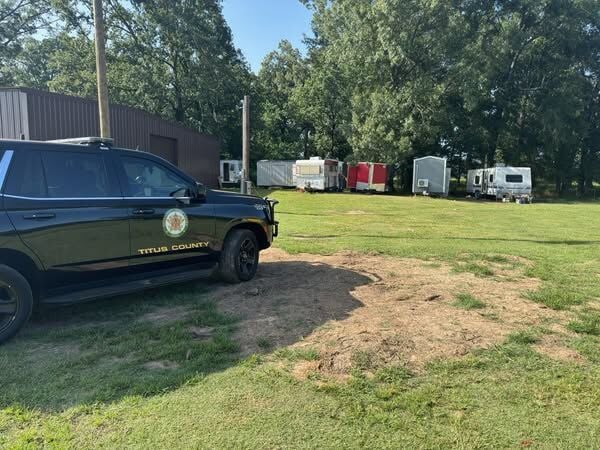East Texas jury orders Verizon to pay $847 million in patent infringement trial
Published 11:00 pm Sunday, June 30, 2024

- A federal jury in Marshall has ordered Verizon to pay Dallas-based General Access Solutions $847 million in patent infringement trial for the infringement of two patents related to 5G wireless mobile service. (Marshall News Messenger File Photo)
MARSHALL — After a weeklong trial, a federal jury in Marshall ordered renowned cell phone giant, Verizon, to pay Dallas-based General Access Solutions a reasonable royalty of $847 million for the infringement of two patents related to 5G wireless mobile service as it relates to beamforming and hotspots.
The amount is the exact award in damages that the plaintiff was seeking.
General Access Solutions, formerly known as Raze, filed the lawsuit against Verizon in October 2022. The patent infringement trial kicked off in Marshall’s federal court on Monday with U.S. District Chief Judge Rodney Gilstrap presiding.
Following deliberations Friday, the jury ordered Verizon to pay $583 million for infringement of the ‘931 patent-in-suit and $264 million for the infringement of the ‘794 patent for a total of $847 million in damages.
Alleged Products-
in-Suit
The lawsuit notes that Verizon began to roll out its 5G network around 2018 then followed with the release of 5G mobile services throughout 2019. The products accused of infringing the patents-in-suit include Verizon’s 5G base station equipment and wireless devices the defendant has sold in the United States that receive a cellular signal using 4G or 5G protocols and then route information to mobile stations using 802.11 WiFi communication protocols. These products include, for example, WiFi home or office routers with cellular backhaul, WiFi “hot spots,” as well as smartphones with WiFi hot spot functionality, the lawsuit explains.
Arguments in Case
Representing General Access, attorney Glen Eric Summers, of Denver-based Bartlit Beck LLP, told the jury in opening statements Monday, that the patents were the heart of 5G technology.
“We’re here because Verizon has been infringing two very important patents,” Summers said. “They’ve been using the patents without permission.
“These are not regular run-of-the-mill patents. The patents are the heart of 5G and mobile hotspots,” said Summers.
“The numbers are big only because of the magnitude of Verizon’s infringement,” Summers added. “Beamforming increases the speed of their coverage and quality of their 5G network.”
Representing Verizon, attorney Josh Krevitt, of Gibson Dunn & Crutcher LLP based in New York, argued that Verizon does not infringe and that the patents have nothing to do with 5G technology.
“These patents were (created) 25 years ago,” he said. “That’s way before Facebook, You Tube…” he said. “It has nothing to do with 5G.”
Krevitt argued that the patents-in-suit were only designed for teaching how to operate a fixed wireless network.
“That’s when you’d have big antennas bolted to houses — big antennas that don’t move bolted to houses,” said Krevitt. “That’s all Raze was doing. Raze never touched mobile.”
Krevitt said Raze’s only goal was to be a supplier of fixed broadband wireless access systems.
“It does not support mobility,” he said of the patents-in-suit. “Raze never did anything with mobility. A mobile network is entirely different.”
Krevitt further argued that the patents-in-suit were invalid because of additional language the company’s patent lawyers added to the description that wasn’t in the original patent application.
“The lawyer changed the claims. They added all new requirements and even added brand new claims,” said Krevitt. “
“The question is were the changes General Access’ lawyer made, were the changes in the original application,” said Krevitt.
“It’s also invalid because the patent does not enable beamforming in a mobile network,” Krevitt argued. “This patent (language) was written 25 years ago and does not mention anything about mobility.”
Verdict
The federal jury in Marshall determined Friday that Verizon did not prove its invalidity claim that the patents were invalid due to lack of written description and /or not being fully enabled.
The jury found that General Access did prove, however, that Verizon was guilty of infringement.
East Texas firms serving as co-counsel in the case included The Dacus Firm, PC, of Tyler, representing the defendant Verizon. Ward, Smith & Hill, PLLC, of Longview, served as co-counsel for the plaintiff, General Access.






